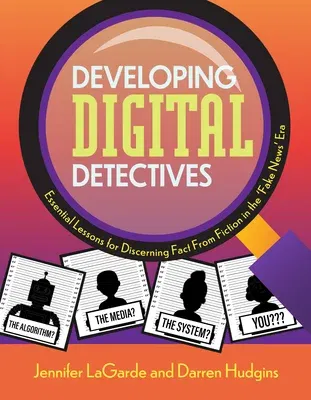From the authors of the bestselling Fact vs. Fiction, this book
offers easy-to-implement lessons to engage students in becoming media
literacy "digital detectives," looking for clues, questioning motives,
uncovering patterns, developing theories and, ultimately, delivering a
verdict.
The current news landscape is driven by clicks, with every social media
influencer, trained and citizen journalists chasing the same goal: a
viral story. In this environment, where the race to be first on the
scene with the most sensational story often overshadows the need for
accuracy, traditional strategies for determining information credibility
are no longer enough. Rather than simply helping students become savvy
information consumers, today's educators must provide learners with the
skills to be digital detectives - information interrogators who are
armed with a variety of tools for dissecting news stories and
determining what's real and what isn't in our "post-truth world."
This book:
-
Shares meaningful lessons that move beyond traditional "fake news"
protocols to help learners navigate a world in which information can
be both a force for good and a tool used to influence and manipulate.
-
Includes resources and examples to support educators in the work of
facilitating engaging, relevant (and fun!) instructional opportunities
for K-12 learners, in both face-to-face and digital learning
environments.
-
Unpacks the connection between social-emotional learning and
information literacy.
-
Includes access to the Digital Detective's Evidence Locker, an online
collection of over 100 downloadable and remixable resources to support
the lessons in the book.
As the authors state: "Remember, the detective's job is NOT to prove
themselves correct. Their job is to detect the truth!" This statement
reflects the way they approach the lessons in this book, providing clear
and practical guidance to help educators address and overcome this
ever-expanding issue.
Audience: K-12 educators and library media specialists

